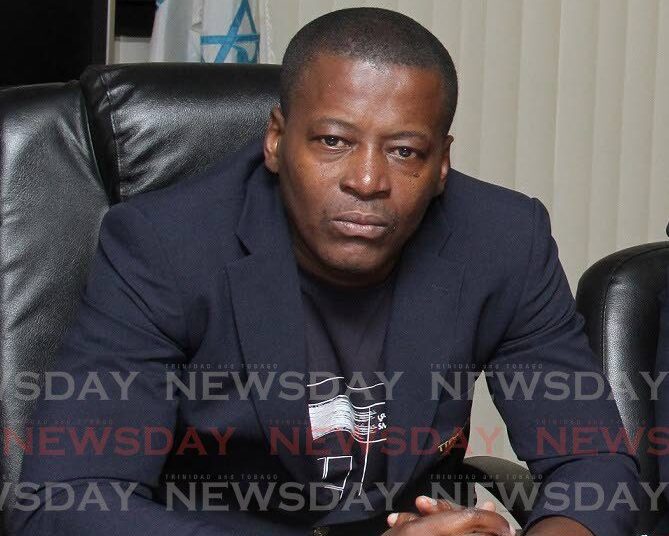Police Service union considering legal options – Polygraph tests may infringe rights

PRESIDENT of the Police Social Welfare Association (PSWA) Acting ASP Gideon Dickson says the association will meet with lawyers to consider legal options regarding the recent Polygraph Bill which was passed in the Lower House, since it potentially infringes on police officers' constitutional rights.
Dickson claimed polygraph testing is a pseudo-science and because of this, he has concerns.
“If an officer fails a polygraph test, will he no longer have a job,” he asked.
In a voice note sent to Newsday via WhatsApp on June 25, Dickson said there was no consultation between the association, stakeholders and government on this issue as well as crime-fighting in general. He said corruption and the prevalence of murders are significant concerns for "civic-minded citizens."
Dickson said despite the government and opposition working together to pass a bill they believe will help fight crime, he is doubtful it will have any positive impact.
He stressed that police officers are the primary entity responsible for investigating corruption and murders, and officers are not the main contributors to issues facing Trinidad and Tobago.
Dickson described the move as perplexing and said police are often singled-out when greater emphasis should be placed on criminals and equipping the TTPS with resources to find solutions to "the most significant problems in TT society."
“Police officers are not the main contributors to the two main prevalent issues facing TT – corruption and murders. It is strange that every time, the police are singled out as a soft target, to bring about remedying what are the greatest issues in TT.”
He said investigation is the TTPS's “greatest hallmark for successful policing." Dickson said officers carry thousands of people before the courts every year.
“People are entitled to their civic protection by the law, even police officers, but look at who is targeted to address these issues. The same officers who are addressing these issues, they are putting more mechanisms in place to change the stethoscope.”
Dickson, who throughout his voice notes referred to polygraph tests as a pseudo-science, questioned the accuracy of such a test and called for other professionals including politicians, magistrates, judges and doctors, to also be tested.
He said if it was "genuinely accurate," it would be used more often and play a greater role in determining someone's guilt or innocence.
Dickson believes the focus should be on addressing the root causes of crime and corruption rather than implementing "symptomatic responses."
He called for more collaboration with those who have a "genuine desire to change the current trajectory of crime and criminality."
On June 21, the Miscellaneous Provisions (Testing and Identification) Bill was unanimously passed, as all 36 members voted in favour.
If the bill becomes law, it would authorise the use of polygraph tests, drug-testing and biometric identification for members of the protective services, as well as certain offices within the Judicial and Legal Service and the civil service.
It aims to establish a regulatory framework for polygraph (lie detector) tests, drug tests and the collection of biometric information, such as fingerprints.

Comments
"Police Service union considering legal options – Polygraph tests may infringe rights"